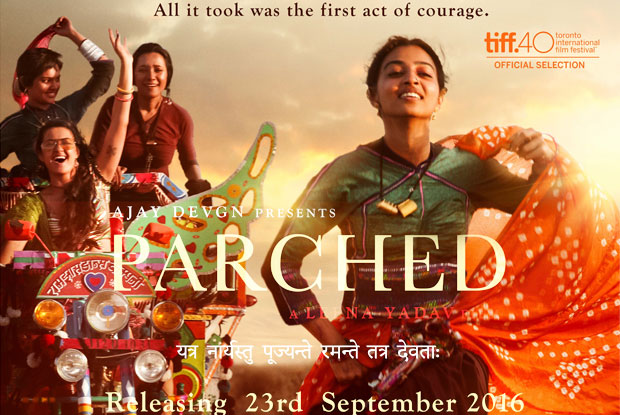Parched (2016): A story of female empowerment and male insecurity
With the post, Dirty Picture (2011) and the Dance Hypocrisy, I started a series on the role of Indian films in shaping, reflecting, and commenting on gender norms in India.
That first post explored sexuality in film. In this post, I explore the relationship between gender and power. Namely, I focus on the 2016 film Parched and the relationship between female empowerment and male insecurity.
Parched is about the women and men of a small Indian village.
Rani, played by Tannishtha Chatterjee, is a young widow with a teenage son, Gulab. When Gulab is deemed of age for marriage, his mother organizes his marriage to a young woman, Janki, from a neighboring village. Unbeknownst to them, Janki’s hair has been cut short, a solution to lice. When Gulab finds out, he feels that his honor, at least as publicly defined, has been compromised. In his moment of insecurity, he beats Janki, turns to drinking, and asserts his sense of power at the brothel.
Lajjo, played by Radhika Apte, is Rani’s fun loving best friend. When a non-resident Indian offers the village’s women employment in his handicraft business, Lajjo jumps on the opportunity and excels. But private oppression leaves her bruised and depressed at work. She and her husband are unable to have a child, and Lajjo’s husband beats her in frustration at his own infertility. Unable to earn as much as her, he beats her more because of her wages.
Bijli, played by Surveen Chawla, is Lajjo and Rani’s childhood friend. But she sees them infrequently. Her dancing at a local club, where local men drink, ogle, and pay for sex, limits her inclusion in more ‘acceptable’ village activities. She is fully aware of the irony. Her storyline offers a similar statement as that of Silk in Dirty Picture (2011), or Chandramukhi in Devdas (2002).
Parched is not plot-driven; it is message-driven. And the messages are clear.
One message, for example, is that the oppression of women is a manifestation of the insecurity of men. This is clear as Lajjo’s husband beats her in frustration for his lack of success in the labor market and for his own infertility. It’s also clear when a group of boys (including Rani’s son Gulab) beat up the man who provides employment opportunities (and thus empowerment) to their mothers, sisters, and wives.
Another message is that women do not need men to be whole and happy. Bijli, for example, may dance for men, but she never lets her relationships with them define her sense of worth, or her happiness. In time, she encourages Rani and Lajjo to embrace this often-suppressed truth.
Parched is an exceptionally well acted film with an important message. It is well worth the watch and is available on Netflix.
Title image source
